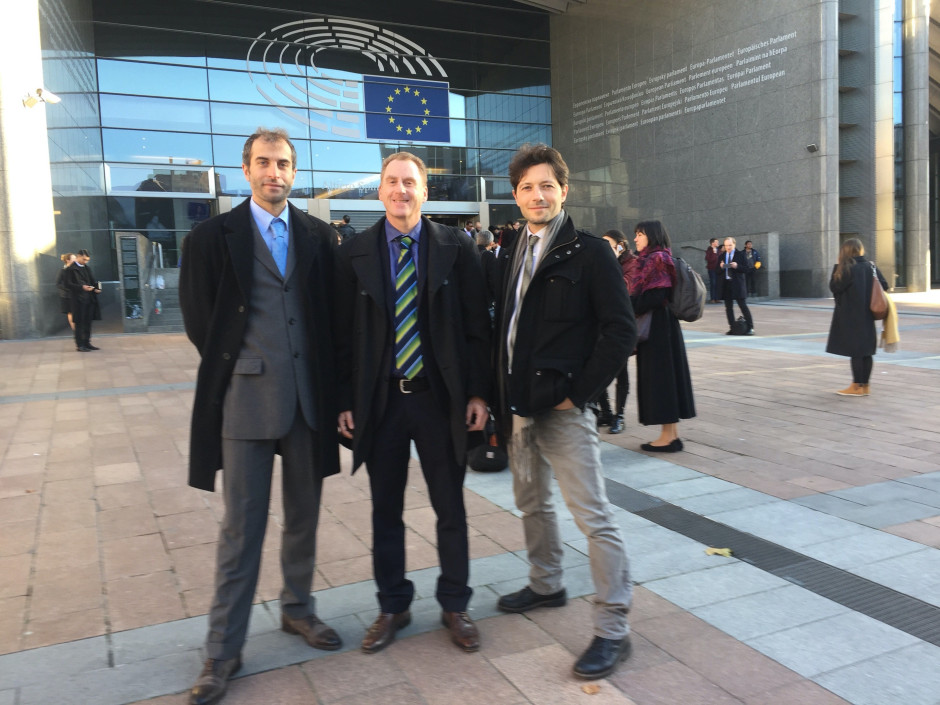Report on Environmental Crimes in the Carpathians
The study out of Eurac Research, commissioned by World Wide Fund for Nature (WWF) and the United Nations Environmental Program (UNEP), captures the current situation and proposes recommendations to the European Parliament.
The Carpathians are one of the last bastions of biodiversity left in Europe, but poaching and uncontrolled logging endanger its survival. There are several international agreements for environmental protection laws that have been ratified by Carpathian countries, but implementing these laws and fighting crimes against wildlife has not been easy. For this reason, UNEP and the WWF commissioned regional development experts from Eurac Research to study the situation; to identify the areas of greatest concern; and to make recommendations to local governments and international authorities. On November 22nd, researchers reported to Daniel Calleja Crespo (the Director of the Directorate-General for Environment of the European Commission), to European Parliament members, as well as to representatives of international organisations in Brussels.
In the international ranking of the most profitable illegal activities, environmental crimes occupy fourth place after drug trafficking, trafficking of human beings and corruption. In the Carpathians, this phenomenon is aggravated by the difficulty of implementing and enforcing international protocols at a national level. Based on questionnaires and meetings with environmentalists, researchers, public authorities and local stakeholders, Eurac Research experts identified the most pressing environmental threats in the Carpathians and suggested some solutions. Within the identified problem areas, researchers focused their attention on the poaching of birds and large carnivores; the illegal fishing of sturgeons; and illegal logging. Southeast Europe is a popular area for the illegal capture of birds, due to its biodiversity, its many species native birds, and its location on the migratory route between Europe and Africa. Wild birds caught in Serbia, for example, are often illegally sold to European restaurants.
Interviews with local stakeholders helped researchers to get a clearer picture of the context: "Environmental inspectors who monitor compliance with the law are not allowed to arrest offenders, or even to investigate possible offenses,” explains Isidoro De Bortoli, one of the authors of the study. “Moreover, there is no clear distinction between administrative sanctions and penalties; it is up to the public prosecutor to decide how to deal with each single case. A high level of corruption is still the biggest plague.” This confusing legal framework is coupled with a lack of environmental awareness and the conviction that humans must impose their supremacy over nature. "Bears, wolves and lynxes are exhibited as trophies. Furthermore, in economically difficult situations, poaching is a low risk way to increase income,” adds Filippo Favilli, another author of the report.
To increase the public awareness and to ensure that environmental laws are respected and offenders punished, researchers have drafted recommendations, including reinforcing the training of judges and police and encouraging their collaboration; creating anti-poaching teams and providing them with the necessary equipment to control the territories, in particular cross-border areas; increasing sanctions; using geo-referencing systems to identify the areas where poachers operate; and to promote the enhancement of national natural heritage and environmental tourism.
Related Articles
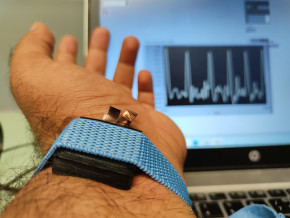
Tecno-prodotti. Creati nuovi sensori triboelettrici nel laboratorio di sensoristica al NOI Techpark
I wearable sono dispositivi ormai imprescindibili nel settore sanitario e sportivo: un mercato in crescita a livello globale che ha bisogno di fonti di energia alternative e sensori affidabili, economici e sostenibili. Il laboratorio Sensing Technologies Lab della Libera Università di Bolzano (unibz) al Parco Tecnologico NOI Techpark ha realizzato un prototipo di dispositivo indossabile autoalimentato che soddisfa tutti questi requisiti. Un progetto nato grazie alla collaborazione con il Center for Sensing Solutions di Eurac Research e l’Advanced Technology Institute dell’Università del Surrey.
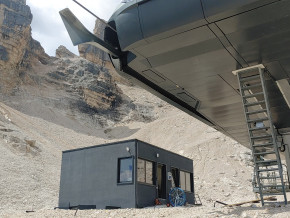
unibz forscht an technologischen Lösungen zur Erhaltung des Permafrostes in den Dolomiten
Wie kann brüchig gewordener Boden in den Dolomiten gekühlt und damit gesichert werden? Am Samstag, den 9. September fand in Cortina d'Ampezzo an der Bergstation der Sesselbahn Pian Ra Valles Bus Tofana die Präsentation des Projekts „Rescue Permafrost " statt. Ein Projekt, das in Zusammenarbeit mit Fachleuten für nachhaltiges Design, darunter einem Forschungsteam für Umweltphysik der unibz, entwickelt wurde. Das gemeinsame Ziel: das gefährliche Auftauen des Permafrosts zu verhindern, ein Phänomen, das aufgrund des globalen Klimawandels immer öfter auftritt. Die Freie Universität Bozen hat nun im Rahmen des Forschungsprojekts eine erste dynamische Analyse der Auswirkungen einer technologischen Lösung zur Kühlung der Bodentemperatur durchgeführt.
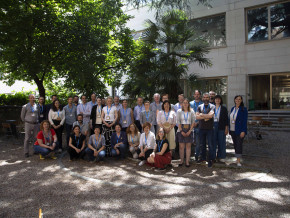
Gesunde Böden dank Partizipation der Bevölkerung: unibz koordiniert Citizen-Science-Projekt ECHO
Die Citizen-Science-Initiative „ECHO - Engaging Citizens in soil science: the road to Healthier Soils" zielt darauf ab, das Wissen und das Bewusstsein der EU-Bürger:innen für die Bodengesundheit über deren aktive Einbeziehung in das Projekt zu verbessern. Mit 16 Teilnehmern aus ganz Europa - 10 führenden Universitäten und Forschungszentren, 4 KMU und 2 Stiftungen - wird ECHO 16.500 Standorte in verschiedenen klimatischen und biogeografischen Regionen bewerten, um seine ehrgeizigen Ziele zu erreichen.
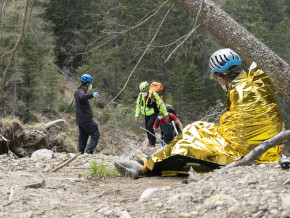
Erstversorgung: Drohnen machen den Unterschied
Die Ergebnisse einer Studie von Eurac Research und der Bergrettung Südtirol liegen vor.
